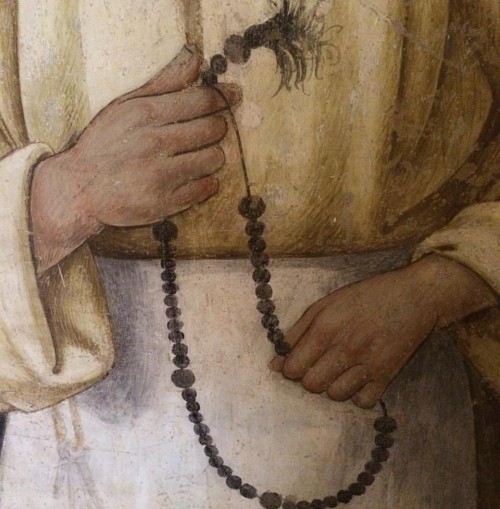Our life in the light of thy countenance

The Collect of Saint Bruno is, at a first glance, astonishing in that it does not even mention his characteristic grace: solitude. One would expect a prayer with some allusion to the silence of the desert and to Saint Bruno’s life alone with God. Instead, this is what the liturgy gives us:
Sancti Brunónis Confessóris tui, quaesumus, Dómine, intercessiónibus adiuvémur: ut, qui maiestátem tuam gráviter delinquéndo offéndimus, eius méritis et précibus, nostrórum delictórum véniam consequámur.
May the intercession of Saint Bruno, Thy Confessor, help us, we beseech Thee, O Lord; that we, who have weightily offended Thy Majesty by sin, may, by his merits and prayers, obtain forgiveness for our misdeeds.
What exactly is going on in this Collect? How does it relate to Saint Bruno’s life? And how does it relate to your life and to mine? We begin, as is customary, by asking for the saint’s intercession. To intercede means, literally, to put oneself between two parties; to stand in the middle, representing the interests of one to another. We acknowledge, then, that today, in a special way, Saint Bruno places himself in Christ and with Christ, the sole Mediator, between ourselves and God. Saint Bruno speaks to God on our behalf. He pleads our cause, represents our interests, and secures heavenly benefits for us. Then, turning to us, on behalf of God, Saint Bruno communicates to us, the good things that God sees fit to grant in response to the merits and prayers of his saint.
What is the grace peculiar to today’ feast? It is, if we are to believe the Collect, forgiveness for our misdeeds. The Collect expresses a lucid awareness of sin: it says, “who have weightily — graviter — offended Thy Majesty by sin”. There are no light sins. All sin is appallingly wicked and serious because it is, in one form or another, the pride of man rearing its ugly head in defiance of God.
“Right enough”, you say, “but where does Saint Bruno come in?” Bruno is the father of solitaries. One of the effects of solitude is that it clarifies our vision. Solitude allows us to strip away the masks that disguise us even to ourselves. Solitude compels us to be brutally honest, to see things as they are and not as we would imagine them to be, or as we would have them be. This is why solitude makes people nervous and anxious. This is why people cannot bear to be alone without the mobile telephone, the computer, the television, and whatever other gadget facilitates escape into the social media. No sooner is a man alone than he begins to see himself as he is. His sins rise up before him. Psalm 89 describes what happens:
Thou hast set our iniquities before thy eyes: our life in the light of thy countenance. For all our days are spent; and in thy wrath we have fainted away. (Psalm 89:8–9)
If one is alone — apart from Christ — one will most certainly sink into despair. If, however, one is alone with Christ, although the haunting spectre of one’s sins rises in the gloom so do does the light of the Face of Christ and, in the light of His Face there is mercy, and healing, and a hope that will not leave one confounded. “Unto you that fear my name, the Sun of justice shall arise, and health in his wings” (Malachi 4:2).
The reality of sin without Christ leads to despair. (It is this that accounts for so many suicides.) The same reality, with Christ, opens the soul to mercy, to forgiveness, and to the restoration of innocence.
I shall give you a secret — one that Saint Bruno knew and practiced — whenever you go into solitude, whenever you close a door behind you, or turn off a light, or shut down the computer, or silence the telephone, take Mary into that space of solitude with you. To those who venture into the great silence of the desert, the Mother of God reveals the Face of her Son. Mary is the Virgin Companion of those who are afraid of being alone. Mary exorcises all the dark and fearful places where, without her, we ought rightly fear to go.
This evening we shall enter into the feast of Our Lady of the Most Holy Rosary. It is the perfect sequel to this feast of Saint Bruno. Nothing need frighten one who faces himself with rosary in hand: not one’s sins, nor one’s betrayals, nor the madness of a misspent youth, nor the follies of the mid–life crisis, nor the twilight of old age. To the man who holds fast to his beads, and calls upon the Mother of God, there is no thing visible or invisible that is capable of extinguishing hope. The maternal presence of the Queen of the Most Holy Rosary shall compass thee with a shield; thou shalt walk upon the asp and the basilisk, thou shalt trample under foot the lion and the dragon, and thou shalt not be afraid of the terror of the night.
